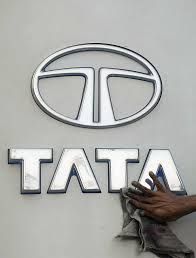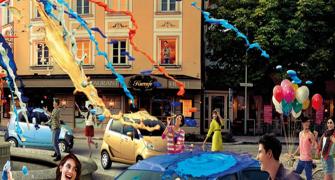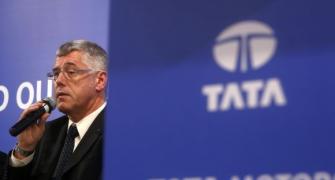 Traditional commercial vehicle manufacturers, such as Tata Motors and Ashok Leyland, are increasingly switching to providing vehicles fully built by them, rather than supplying only the chassis.
Traditional commercial vehicle manufacturers, such as Tata Motors and Ashok Leyland, are increasingly switching to providing vehicles fully built by them, rather than supplying only the chassis.
The advantage is customers of trucks and buses can buy the final product directly from vehicle manufacturers, instead of approaching a body builder with a chassis, as has been the case in the past.
Mumbai-based Tata Motors, India’s biggest commercial vehicle manufacturer, has invited vendors (body builders) to set up a facility closer to its chassis manufacturing plant.
Ashok Leyland, the third-largest commercial vehicle maker in the country, is offering fabricated designs on its products to meet consumer requirements.
These include specified containers to refrigerators.
Customers of a fully-built vehicle bought directly from the manufacturer benefit from the desired performance expected from the vehicle, compared to an uncertified body mounted on a chassis, which does not come with much guarantee.
Ravindra Pisharody, executive director (commercial vehicles) at Tata Motors, said: “Customers go to specialised tin-shed body makers, which in many cases are not (built) as per regulations. Quality is never guaranteed; so, as a result, the performance was not up to what was promised.”
Today, 60-70 per cent of Tata Motors vehicles are fully-built products.
A few years ago, the figure was 20-25 per cent.
“We believed we should take the lead and provide solutions in fully-built vehicles, so we created a vertical for this. “We have two-three vendors for something which has large application, which is not specialised.
“Something like a petroleum tanker, where the numbers are less; so, we have a specialised vendor. Based on our projection, they (vendors) invest in capacities.
“The final quality check is done and suited to Tata Motors specifications,” added Pisharody.
The difference between the cost of buying a fully-built vehicle from a manufacturer and that from a body builder could be as high as 20
However, the uncertified body does not last as long as that developed by a certified builder, though the chassis may last much longer.
Further, insurance companies may charge a very high premium for vehicles developed by a third-party body builder or may even refuse to insure it.
A third-party body builder also does not have spare parts support offered by vehicle manufacturers.
“If you look at the Boss truck, it comes with a cab; it comes with specific load body set-up, which is pre-designed. So does the U-Truck.
“The Dost comes with a range of fully built options, fabricated containers, refrigerated trucks.
“So yes we are also moving in the same direction,” said V Sumantran, vice-chairman, Ashok Leyland.
In the coming decade, Tata Motors expects an increasing preference for applications for medium and heavy cargo and special applications on light, intermediate and small commercial vehicles, other than the growing demand from defence and other government authorities and institutions.
Tata Motors has already begun assembling such specialities.
Among them are load bodies made of imported panels, which are covered with laser welding which eliminates spot welding, high-end car carriers, trailers, demountable fuel bowser, recovery vehicles for all terrains, water tankers, etc.
The company also sees a strong demand in defence applications including armoured vehicles and ambulances.
There is also a growing interest for municipal application such as garbage compactors, water tankers, mobile electrical repair vehicles, road and sewage cleaning not only on medium and heavy vehicles, but also on small vehicles especially for congested city applications.
Directives from the Supreme Court strictly curbing overloading of trucks also changed customers’ outlook, boosting the demand for fully-built commercial vehicles, especially with larger fleet owners.










